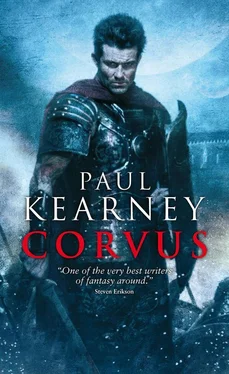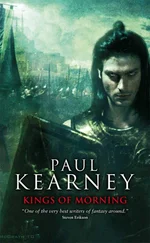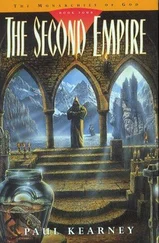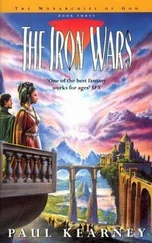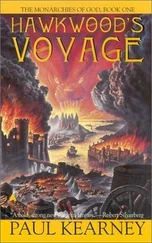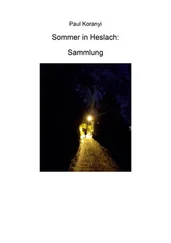Paul Kearney - Corvus
Здесь есть возможность читать онлайн «Paul Kearney - Corvus» весь текст электронной книги совершенно бесплатно (целиком полную версию без сокращений). В некоторых случаях можно слушать аудио, скачать через торрент в формате fb2 и присутствует краткое содержание. Жанр: Фэнтези, на английском языке. Описание произведения, (предисловие) а так же отзывы посетителей доступны на портале библиотеки ЛибКат.
- Название:Corvus
- Автор:
- Жанр:
- Год:неизвестен
- ISBN:нет данных
- Рейтинг книги:5 / 5. Голосов: 1
-
Избранное:Добавить в избранное
- Отзывы:
-
Ваша оценка:
- 100
- 1
- 2
- 3
- 4
- 5
Corvus: краткое содержание, описание и аннотация
Предлагаем к чтению аннотацию, описание, краткое содержание или предисловие (зависит от того, что написал сам автор книги «Corvus»). Если вы не нашли необходимую информацию о книге — напишите в комментариях, мы постараемся отыскать её.
Corvus — читать онлайн бесплатно полную книгу (весь текст) целиком
Ниже представлен текст книги, разбитый по страницам. Система сохранения места последней прочитанной страницы, позволяет с удобством читать онлайн бесплатно книгу «Corvus», без необходимости каждый раз заново искать на чём Вы остановились. Поставьте закладку, и сможете в любой момент перейти на страницу, на которой закончили чтение.
Интервал:
Закладка:
Rictus blinked rapidly, looking at the wall of spearmen ahead. Their shields were emblazoned with the gabios sigil for their city and their line had the not-quite-straight aspect of citizen soldiers.
It was a good plan – the boy with the painted nails knew what he was doing.
“I’ll hit their left,” he told Corvus. “Tell Teresian to take his mora in right, but slow, so I hit first. That’ll scramble them for him.”
“I’ll link with you on the left as you go in, and cover your flank,” Druze said. There was none of his mocking humour on display now; he was in deadly earnest. For the first time, Rictus warmed to him.
“All right, then. Let us join the Dance,” Rictus said, the age old aphorism of the Macht going into battle.
“Now we’ll see how Rictus of Isca fights,” Corvus said. And he had on his face an expression of such bright, intense happiness that he did not seem quite sane.
The Dogsheads fell into position in minutes. On their right, Teresian’s men took rather longer to dress their lines. These were Corvus’s regulars, and Teresian himself was going to take the mora in. One thing about Corvus’s officers; they all liked to lead from the front.
A few observations were exchanged between the two bodies of spearmen, with reflections on the chastity of one another’s mothers and other witticisms, until Fornyx put a stop to it.
“Save it for the buggers up ahead, you mouthy bastards,” he called out.
Rictus stepped forward of the line. For a moment he stood there, a black armoured statue in a red cloak, face hidden by the close helm, the transverse crest bristling in the wind. Then he raised his spear, and as the Macht behind him stepped out he joined the front rank, and the five understrength centons of the Dogsheads began their advance.
It began as a murmur, a hum upon their breath. But then Valerian struck out with the Paean, a lone, ringing voice in the midst of the phalanx. Others joined him, until the entire formation was singing it, the measured, mournful beat of the ancient melody keeping their feet in time. To their right, Teresian’s mora joined in.
And to their front, the men of Goron took up the song also, so that the whole battlefield was singing it, as though the two sides were coming together in harmony instead of mutual murder. It made of the coming fight a proper thing, a ceremonial event.
For Rictus, the Paean was something different. He no longer joined in the singing, and had not since returning from the Empire all those years before. He had never forgotten the second day of Kunaksa, when the Ten Thousand had sung that song, believing they were marching to their doom but advancing anyway, to make themselves worthy of memory. It had kept them going that day, had reminded them of who they were.
He no longer liked to sing it when fighting against his own people.
The enemy line levelled their spears and began to advance to meet the Dogsheads.
“Shoulder!” Rictus shouted, and his own men brought the long spears up so that the wicked points of the aichmes were jutting out to their front. The files were six men deep; usually they fought eight to a file, but Rictus had wanted to lengthen the line somewhat, and they were still a deeper formation than the more numerous enemy.
The men of Goron had made an error, trying to cover all the ground between the woods. They had thinned out their centons, the classic mistake of amateurs worried about their flanks.
Rictus turned his head this way and that, taking in the positions. In a few minutes he would be in the middle of the othismos, and blind to everything except the man in front who was trying to kill him. He saw Druze’s men going into the woods like a crowd of screaming fiends to his left, and saw the hidden skirmishers of the enemy rise out of the brush to meet them. His flank was covered.
“Charge!” he shouted. And the Dogsheads broke into a run.
They kept formation; they had drilled and drilled this a thousand times over the years. No citizen army could maintain their ranks at a run; they grew scrambled and ragged, lost the compact momentum that was the key to phalanx fighting. But Rictus’s men were professionals, the finest of their calling. They ate up the ground at a fast lope, still singing, and smashed into the enemy formation with an appalling crash of bronze.
Shields smashing against shields. An aichme thrust past Rictus’s eyes. Another went through his horsehair crest.
He gave a grunt as the weight of the men behind piled into him, lifting his feet off the ground for a moment. He jabbed out with his spear, ignoring the shrieking enemy spearman who was pressed up close to his face, stabbing into the third and fourth ranks.
He killed the file-closer with a jab to the eyes, slotting his spearhead into the man’s helm, the blade grating on bronze and bone as he pulled it out again. Blood sprayed warm across his forearm. The stench of excrement rose as men lost control of their bowels.
The Dogsheads shunted backwards a huge segment of the enemy’s line. Men went down, stumbling, disappearing in the scrum.
The enemy ranks became a formless mob of yelling figures, painted with blood, jabbing wildly with their spears. There was a sound like the clatter of a hundred blacksmiths at work. A broken spearhead arced through the air, the shaft a splintered flower.
The Dogsheads worked mechanically, stabbing out at eye-slits, naked throats, raised arms, picking carefully the flesh they wanted to ruin. This was shearing the sheep. A man had to stand in the ranks and take it. There was no running away for those at the forefront of the fighting. They lowered their heads into their shields and dug in their heels.
Rictus heard his centurions shouting above the clamour of the fight.’ “Push, you bastards, push!” Fornyx yelled, and the men in the rear ranks set their shields in the backs of the men in front and obeyed him.
Another shunt forward, the crushing weight of the men behind and the men in front.
Without the protection of his black- cuirass Rictus would not have been able to breathe in that packed mill of murder. Men passed out and were carried upright in the midst of it. There were bodies underfoot now, abandoned shields, and the ground was being trampled into muck beneath them, becoming mired with blood and other, baser fluids.
“One more!” Rictus shouted with what breath remained in his bruised lungs. “Dogsheads, forward!”
He could feel it, like a sudden change in the weather. The men of Goron were faltering; the pressure to his front was growing less. He met the eyes of the man pinned against him, and saw the doubt and defeat in them. He grinned.
“You are a dead man,” he said, and laughed.
The enemy line broke as the Dogsheads pushed forward a third time. First the men at the rear dropped their shields and ran, and then the panic spread. In seconds, the battle opened out. The enemy formation lost all order, became a mob in which every man thought only of himself. The pressure eased. The man pinned against Rictus backed away one pace, two, still looking into his eyes. He was a good soldier – it was why he was a file leader. He did not want to run, to drop his shield in shame and present his back to the aichmes of his foes. He was weeping.
Finally, when those behind him had left him, he turned to follow them, to run for the safety of his city walls. When he turned, Rictus stabbed him through the back of his neck, feeling the spearhead crunch through the man’s spine. He went down bonelessly.
Rictus stepped over him. The entire enemy line was in flight. To the right, Teresian’s men were following up with a chorus of wild halloos and shrieks of laughter: wordless, mindless noise, both exultation and relief. Rictus raised his spear, breathing fast as a sprinter.
Читать дальшеИнтервал:
Закладка:
Похожие книги на «Corvus»
Представляем Вашему вниманию похожие книги на «Corvus» списком для выбора. Мы отобрали схожую по названию и смыслу литературу в надежде предоставить читателям больше вариантов отыскать новые, интересные, ещё непрочитанные произведения.
Обсуждение, отзывы о книге «Corvus» и просто собственные мнения читателей. Оставьте ваши комментарии, напишите, что Вы думаете о произведении, его смысле или главных героях. Укажите что конкретно понравилось, а что нет, и почему Вы так считаете.
